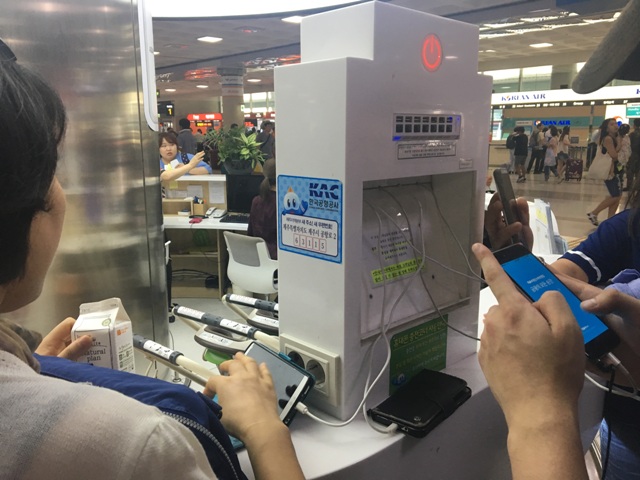| |
 |
|
| ▲ Photo by Able Team |
[This article is written by a JDC Junior Journalist. The JDC Junior Journalist program is an educational project sponsored by Jeju Free International City Development Corporation (JDC). JDC Junior Journalist articles are only briefly edited by mentors before publishing.]
When some products and systems have names that start with “Smart,” it means that they are connected with information technology, like smart phones and smart learning. Then there is the Smart Grid, which becomes smart by opening up communication between suppliers and consumers of electricity. Fortunately, Jeju (Gujwa - eup) has become a place where positive research of the Smart Grid has been implemented from 2009 to 2013. Almost 6,000 households are involved in the project and 12 consortium support it.
To be more specific, the Smart Grid uses various renewable energy to make electricity, such as solar heat, wind power, and hydro power. Therefore, the Smart Grid plays an important role in reducing CO2 emissions and waste from thermal or nuclear power plants. According to a tour guide at the Smart Grid Information Center, in Gujwa - eup, an amount of 3 mega watts of electricity is made by the Smart Grid’s windmill. For a family of four, an amount of 3 kilowatts of electricity is used in a day and 3 MW is ten times more than 3KW.
The most important aspect of the Smart Grid is the communication between suppliers and consumers. Today, people get electricity in a one way grid: suppliers to consumers. But the Smart Grid has a two-way exchange of electricity. Consumers can know how much electricity they are using by a smart meter that regulates their electricity use. It can prevent wasting electricity and environmental problems, such as global warming.
Also, the Smart Grid adopts an effective electricity paying system, controlling the price of electricity, which becomes more expensive during peak time, 2 pm to 5 pm and cheaper at other times. Especially in summer and winter, people use more electricity and there are often shortages of electricity. To disperse the peak time’s demands, people buy cheaper electricity in the non-peak time and use it in the peak time.
Different intelligent sensors are installed throughout the Smart Grid, which check information such as temperature, wind direction, and weather of each region. Thus, these sensors prevent trouble that can occur in typical electrical grids, such as blackouts. Also, if any trouble happens, the amount of time to fix the problem is shortened by more than 30 percent. In other words, the Smart Grid is convenient for consumers and improves the production of companies.
Many different systems are implemented in the Smart Grid, which are essential and helpful to people and the environment. Even though the Smart Grid project in Jeju might be seen as a small development for intelligent electricity use, it is an important steppingstone to make renewable energy more clear and to accomplish a sustainable life in the future. It will be accelerated when people are paying attention to the Smart Grid and willing to make an effort to use green energy. |





















